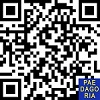OUTCOME-BASED EDUCATION PADA KURIKULUM MERDEKA: LINIERITAS PEMBELAJARAN DENGAN ASESMEN UNTUK MENCAPAI TUJUAN PEMBELAJARAN
Abstract
Abstrak: Penelitian ini bertujuan untuk mengidentifikasi dan mengekplorasi linieritas pembelajaran dengan asesmen untuk mencapai tujuan pembelajaran pada sekolah yang mengimplementasikan Kurikulum Merdeka. Secara lebih spesifik, penelitian ini menggali bagaimana Outcome-Based Education dilaksanakan pada tataran praktis untuk mencapai tujuan pembelajaran melalui pembelajaran yang berpusat pada murid. Penelitian ini menggunakan studi kasus yang berpayung pada metode penelitian kualitatif. Penelitian ini melibatkan dua sekolah pengguna Kurikulum Merdeka dan 18 orang guru dari Komite Pembelajaran. Data diperoleh dari dokumen rencana pembelajaran, observasi pembelajaran, dan wawancara semi-struktur. Data dari dokumen modul ajar, observasi, dan wawancara diinterpretasikan dengan cara analisis deskriptif-naratif. Hasil dari penelitian ini menunjukkan bahwa Outcome-Based Education tidak muncul pada ranah implementasi pembelajaran terlihat dari dokumen rencana pembelajaran dan pada pelaksanaan pembelajaran. Ketidaklinieran ditemukan pada: 1) capaian pembelajaran dengan tujuan pembelajaran, 2) tujuan pembelajaran dengan rencana pembelajaran, 3) rencana pembelajaran dengan asesmen, dan 4) tujuan pembelajaran dengan kriteria ketercapaian pembelajaran. Berdasarkan hasil penelitian disarankan agar guru meningkatkan kemahiran dalam merancang pembelajaran yang linier dengan asesmen sehingga dapat mencapai tujuan pembelajaran.
Abstract: This study aims to identify and explore the linearity of learning with assessment to achieve learning objectives in schools implementing the Merdeka Curriculum. More specifically, this study investigates how Outcome-Based Education is implemented in practical terms to achieve learning objectives through student-centered learning. This research utilizes a case study approach grounded in qualitative research methods. It involves two schools that use the Merdeka Curriculum and 18 teachers from the Learning Committee. Data is obtained from lesson plan documents, classroom observations, and semi-structure interviews. PeneData from teaching module documents, observations, and interviews are interpreted through descriptive-narrative analysis. The results of this research indicate that Outcome-Based Education does not appear in the realm of learning implementation, as seen in lesson plan documents and during teaching. Non-linearity is found in: 1) learning outcomes with learning objectives, 2) learning objectives with lesson plans, 3) lesson plans with assessments, and 4) learning objectives with criteria for achievement. Based on the research findings, it is recommended that teachers enhance their skills in designing linear learning with assessments to effectively achieve learning objectives.
Keywords
Full Text:
PDFReferences
Amrulloh, A. (2015). Sistem Penilaian dalam Pembelajaran. Al Bayan, 7(2), 125–148. https://media.neliti.com/media/publications/74008-ID-sistem-penilaian-dalam-pembelajaran.pdf
BSKAP. (2021). Panduan Pembelajaran dan Asesmen. Badan Penelitian Dan Pengembangan Dan Perbukuan 2021, 0–45.
Chatterjee, D., & Corral, J. (2017). How to Write Well-Defined Learning Objectives. Journal of Education in Perioperative Medicine, 19(4), E610. http://www.ucdenver.edu/academics/colleges/medicalschool/education/degree_programs/MDProgram/administration/curriculumoffice/Documents/CU-
Clark, I. (2012). Formative Assessment: Assessment Is for Self-regulated Learning. Educational Psychology Review, 24(2), 205–249. https://doi.org/10.1007/s10648-011-9191-6
Daka, H., Mulenga-hagane, L. M., Mukalula-kalumbi, M., & Lisulo, S. (2021). Making Summative Assessment Effective. European Modern Studies Journal, 5(4), 224–237.
Darwin, D., Boeriswati, E., & Murtadho, F. (2023). Asesmen Pembelajaran Bahasa Dalam Kurikulum Merdeka Belajar Pada Siswa SMA. Lingua Rima: Jurnal Pendidikan Bahasa Dan Sastra Indonesia, 12(2), 25–36.
Fletcher, A. J., & Marchildon, G. P. (2014). Using the delphi method for qualitative, participatory action research in health leadership. International Journal of Qualitative Methods, 13(1), 1–18. https://doi.org/10.1177/160940691401300101
Georgarakou, R. (2022). Learning Goals & Objectives in Course Design: How To Prepare a Great Lesson Plan. Learn Worlds. https://www.learnworlds.com/learning-goals-objectives
Irvine, J. (2017). A comparison of revised Bloom and Marzano’s new taxonomy of learning. Research in Higher Education Journal, 33, 1–16. http://www.aabri.com/copyright.html
Iskandar, I. (2020). Teachers’ fidelity to curriculum: an insight from teachers’ implementation of the Indonesian EFL curriculum policy. International Journal of Humanities and Innovation (IJHI), 3(2), 50–55. https://doi.org/10.33750/ijhi.v3i2.79
Kameas, A., Pierrakeas, C., & Spyropoulou, N. (2015). Design And Development of A Web-Based Tool For Supporting Educators During An Instructional Design Process Based On Learning Objects. Conference Name: 7th International Conference on Education and New Learning Technologies, 7491–7498.
Kemdikbud, I. (2022). Buku Saku Kurikulum Merdeka; Tanya Jawab. Kementerian Pendidikan Dan Kebudayaan, 1–50.
Khan, T., Hande, S., & Singh, T. (2014). Learning Objectives. August 2015. https://doi.org/10.4018/ijudh.2012070105
Mayer, G. R. (2017). Functional assessments and their importance. EC Psychology and Psychiatry , 5(2), 71–77.
Qadir, J., Shafi, A., Al-Fuqaha, A., Taha, A. E. M., Yau, K. L. A., Ponciano, J., Hussain, S., Ali Imran, M., Muhammad, S. S., Rais, R. N. Bin, Rashid, M., & Tan, B. L. (2020). Outcome-Based Engineering Education: A Global Report of International OBE Accreditation and Assessment Practices. American Society for Engineering Education, 127th ASEE(April), 1–35. https://doi.org/10.35542/osf.io/rde62
Riswakhyuningsih, T. (2022). Pengembangan Alur Tujuan Pembelajaran (ATP). RISTEK : Jurnal Riset, Inovasi Dan Teknologi Kabupaten Batang, 7(1), 20–30. http://ojs.batangkab.go.id/index.php/ristek/article/view/123/225
Sana, F., Forrin, N. D., Sharma, M., Dubljevic, T., & Ho, P. (2020). Optimizing the Efficacy of Learning Objectives through Pretests. 1–10. https://doi.org/10.1187/cbe.19-11-0257
Schildkamp, K., van der Kleij, F. M., Heitink, M. C., Kippers, W. B., & Veldkamp, B. P. (2020). Formative assessment: A systematic review of critical teacher prerequisites for classroom practice. International Journal of Educational Research, 103(April), 101602. https://doi.org/10.1016/j.ijer.2020.101602
Sewagegn, A. A. (2020). Learning objective and assessment linkage: Its contribution to meaningful student learning. Universal Journal of Educational Research, 8(11), 5044–5052. https://doi.org/10.13189/ujer.2020.081104
Shaheen, S. (2019). Theoretical perspectives and current challenges of OBE framework. International Journal of Engineering Education, 1(2), 122–129. https://doi.org/10.14710/IJEE.1.2.122-129
Thirumoorthy, D. G. (2023). OUTCOME BASED EDUCATION (OBE) IS NEED OF THE HOUR. https://doi.org/10.29121/granthaalayah.v9.i4.2021.3882
Wermke, W., & Salokangas, M. (2015). Autonomy in education: theoretical and empirical approaches to a contested concept. Nordic Journal of Studies in Educational Policy, 2015(2). https://doi.org/10.3402/nstep.v1.28841
Wiliam, D. (2014). Formative assessment and contingency in the regulation of learning processes. Toward a Theory of Classroom Assessment as the Regulation of Learning, April, 1–13. http://www.dylanwiliam.org/Dylan_Wiliams_website/Papers_files/Formative assessment and contingency in the regulation of learning processes (AERA 2014).docx
DOI: https://doi.org/10.31764/paedagoria.v14i4.16042
Refbacks
- There are currently no refbacks.
Copyright (c) 2023 Badriah Badriah

This work is licensed under a Creative Commons Attribution-ShareAlike 4.0 International License.
Paedagoria : Jurnal Kajian, Penelitian dan Pengembangan Kependidikan
Fakultas Keguruan & Ilmu Pendidikan | Universitas Muhammadiyah Mataram.
_______________________________________________
 | Paedagoria : Jurnal Kajian, Penelitian dan Pengembangan Kependidikan |
______________________________________________
CURRENT INDEXING:
EDITORIAL OFFICE:


















